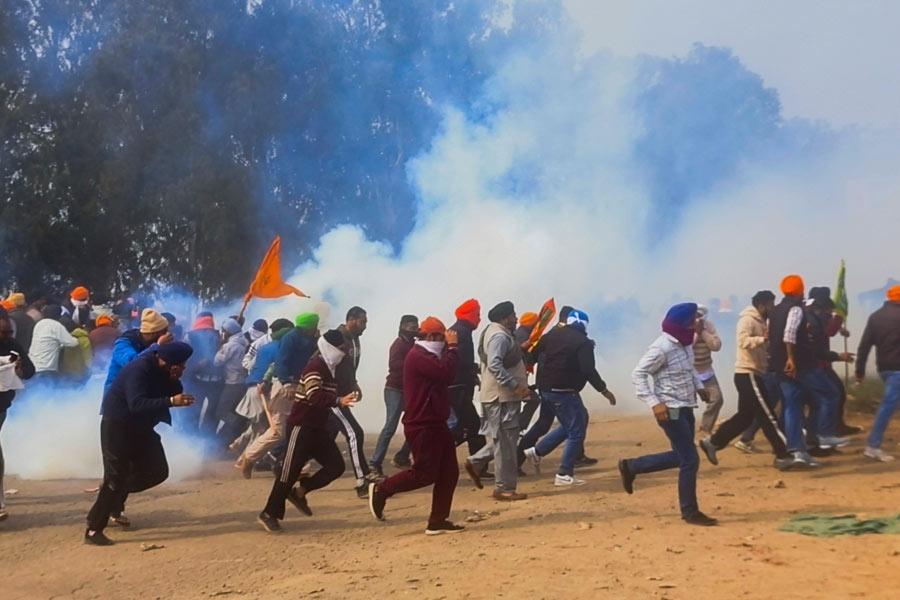by Colin Todhunter, Global Research:
 People are often kept in a state of confusion, unable to recognise the manipulations at play. It is essential to grasp the bigger picture to understand the true motives behind policy manoeuvres. This clarity unveils the policy landscape as a calculated strategy, designed to serve the interests of particular stakeholders.
People are often kept in a state of confusion, unable to recognise the manipulations at play. It is essential to grasp the bigger picture to understand the true motives behind policy manoeuvres. This clarity unveils the policy landscape as a calculated strategy, designed to serve the interests of particular stakeholders.
Take the three repealed farm laws in India. They were part of a broader strategy to corporatise Indian agriculture and aimed to drastically reduce the public sector’s role, making it a facilitator for private capital that could then colonise the space left open by the state’s withdrawal. Despite the laws’ repeal, working on behalf of foreign and domestic capital, the Indian government continues to pursue similar objectives through other means.
TRUTH LIVES on at https://sgtreport.tv/
In late 2021, the Indian government announced that three important farm laws, which would have introduced neoliberal shock therapy to the agriculture sector, would be repealed after a one-year farmers’ mobilisation against the legislation.
It is apt to revisit these repealed laws because the underlying agenda that shaped them persists.
1) The Farmers’ Produce Trade and Commerce (Promotion and Facilitation) Act, 2020. This aimed to allow farmers to sell their produce outside the government-regulated APMC (Agricultural Produce & Livestock Market Committee) mandis (wholesale markets). This law sought to create additional trading opportunities beyond the existing markets, supposedly giving farmers more options and better prices for their crops.
2) The Farmers (Empowerment and Protection) Agreement on Price Assurance and Farm Services Act, 2020. This was designed to provide a framework for contract farming. It would have allowed farmers to enter into agreements with agribusinesses, processors or large retailers for the sale of future farming produce at pre-agreed prices.
3) The Essential Commodities (Amendment) Act, 2020. This aimed to deregulate the production, storage, movement and sale of several major foodstuffs, including cereals, pulses, oilseeds and onions. It would allow these items to be removed from the list of essential commodities, except under extraordinary circumstances. (The Essential Commodities Act of 1955 empowers the government to regulate the production, supply and distribution of certain goods to ensure their availability to consumers.)
Critics argued the legislation would weaken the APMC system, potentially leading to the dismantling of the minimum support price (MSP) mechanism. Farmers feared losing price guarantees and being exploited by private corporations. Opponents were also concerned that small farmers might lack the bargaining power to negotiate fair contracts with large agribusinesses.
There were also concerns about potential exploitation and the absence of adequate safeguards for farmers in disputes. The law pertaining to essential commodities faced criticism for potentially enabling hoarding and price manipulation.
Despite the repeal of the three laws, the powerful interests behind the legislation have not gone away. The goal to capture and radically restructure the sector remains.
The government is pursuing alternative strategies to achieve similar aims. These new approaches, while less direct, could potentially implement many of the changes originally proposed in the repealed legislation.
Below is a screenshot of Google news stories appearing on the protests of Indian farmers in the last few weeks. There were 30 pages of such stories, all appearing in 2024. The search did not allow for more than 30 pages. These stories document farmers’ grievances, government failures to deliver on promises, water cannons and tear gas attacks on unarmed farmers as they intended to peacefully march to Delhi and so on.

The government seems to be playing for time while new legislation is devised and memoranda of understanding are signed with foreign agrifood corporations with no democratic oversight. It is difficult to sustain large-scale protest movements, and the government seems to be relying on this. Moreover, the protesting farmers have yet to achieve the momentum and international support received during the 2020-21 protest.



